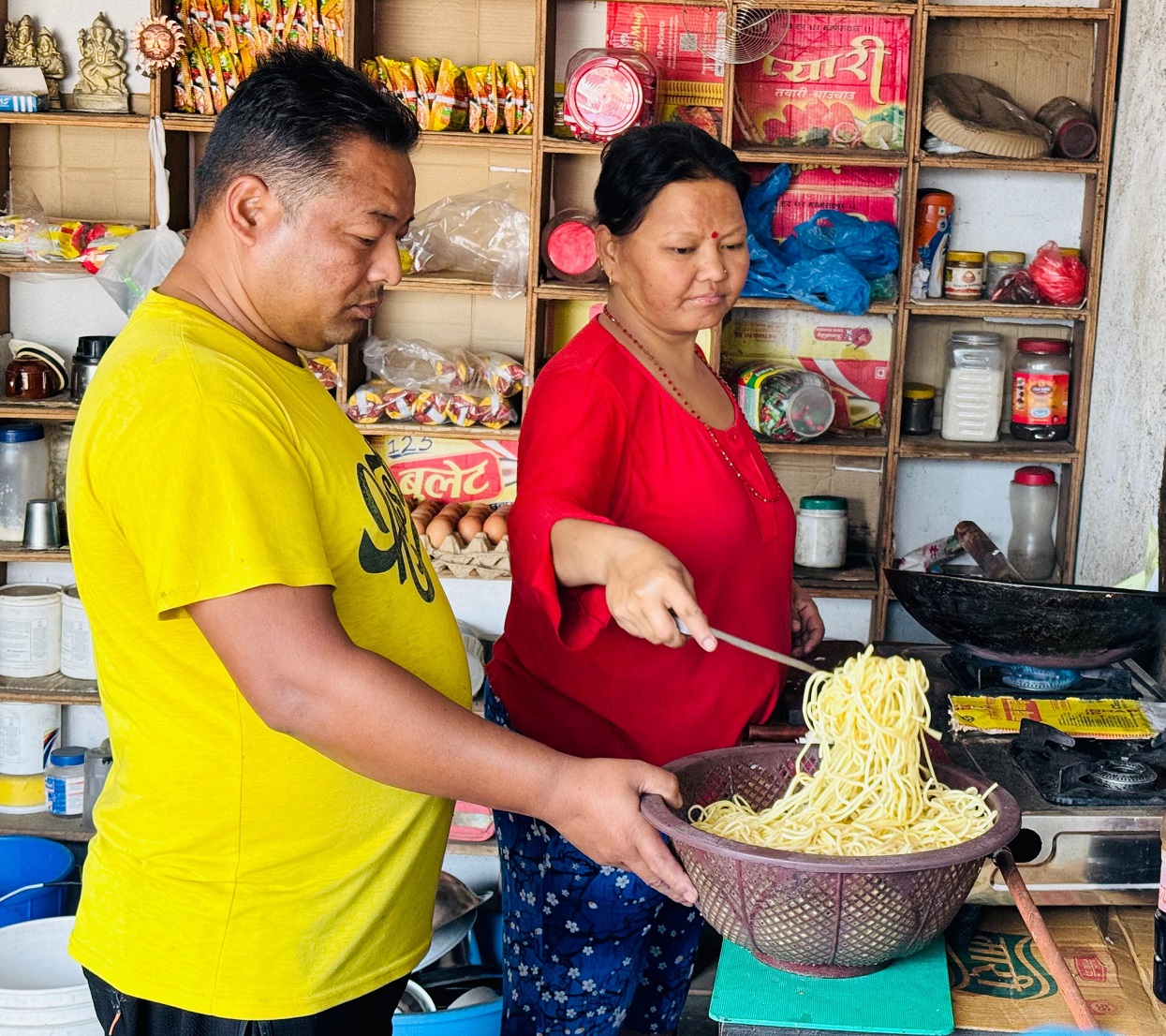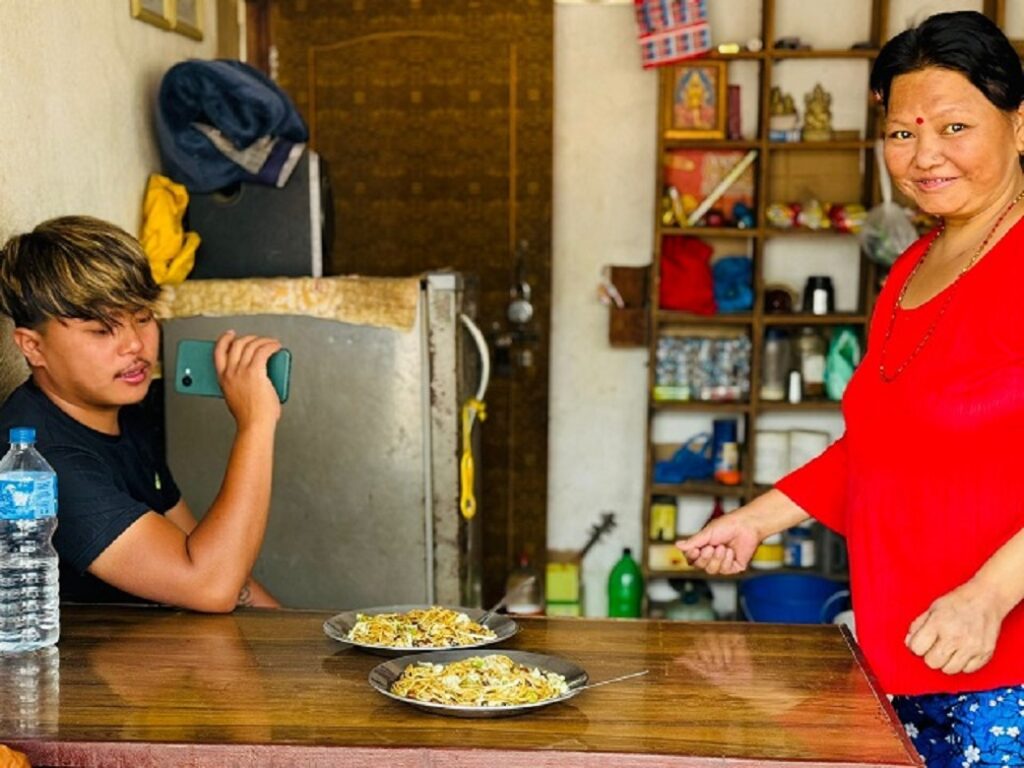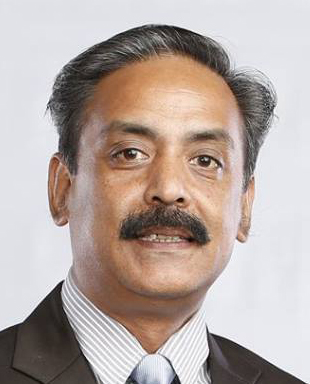Kamal Bahadur Saru Magar, a 44-year-old lives with his wife and two sons in Ratmate, Nuwakot. He began his journey as a breadwinner at a young age and faced several financial hardships early on in his life. Kamal migrated to work in a restaurant in India several years back. After ten years of hardship, he decided to return to Nepal and pursue his own venture to start a restaurant business. With his previous learnings and experience, he opened a small fast-food restaurant at Mahadevphant, Nuwakot that helped him earn a meager NPR 10,000 a month. Besides his small hotel business, his family also relied on their land cultivating limited vegetables and fruits for their livelihood.

His life changed for the better after his land fell within the area designated for the MCA–Nepal’s electricity substation site in Nuwakot. Kamal was not content with the income he was making and had always wanted to expand his business. He had halted his plan to scale up his business for sheer lack of ideas. However, his aspiration became a reality when he was compensated for the land acquired and took part in the Livelihood Restoration Program (LRP) implemented by MCA-Nepal for people like him, whose lands were acquired for the construction of the Ratmate Substation.
Leaving the ancestral land was not an easy decision but the financial compensation provided to Kamal and his family as per the Land Acquisition Act 1977 opened doors for him to upscale his small-scale business. He also purchased a piece of land at Mahadevphant where he plans to build a house in the future.
The Livelihood Restoration Program (LRP) was implemented soon after the land acquisition process to restore the livelihoods and income of socially and economically affected people. Household surveys were carried out under the program to determine the kinds of training project-affected people preferred to meet the objective of the program.
Kamal enrolled in the program and expressed a strong desire to be a part of Sweets and Snacks Making Training. The two-month training enhanced his cooking skills and gave him ideas to expand his menu. Prior to the training, his menu was limited to three to four dishes a day, whereas after the training he added popular local items like Samosa, Chowmein, Momo, and Thukpa. He also includes new food items according to festivals and seasons.

Kamal’s wife also supports him in the business. Additionally, she also enrolled in the program and opted for Goat Farming and Management Training. She was provided with a goat shed and two baby goats post her training to start a goat-rearing business.
Today Kamal and his wife are saving their earnings to fulfill a dream of constructing a house.
Kamal shares with joy, “I am thankful for the skills the LRP has given me. My business is gradually improving because of the training I attended. Currently, I make a net profit of more than NPR 20,000 per month. I am confident that it will continue to thrive over time.” This is double the amount he used to make prior to the program.
Like Kamal, around 270 people have been supported and are benefitting from the program.
